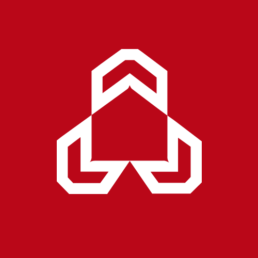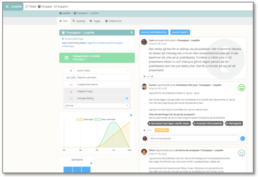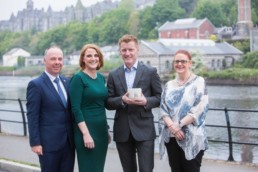Outcome of Studentlitteratur's in-depth test of LoopMe with 116 teachers
During the autumn and winter, the LoopMe team had a collaboration with Studentlitteratur (a major Swedish publisher house) where they really put LoopMe to the test. In three different municipalities, LoopMe has been tested in teacher training in cooperative learning. A total of 116 teachers participated in the work. The work was conducted in close collaboration with experts in cooperative learning. Niclas Fohlin and Jennie Wilson designed action-oriented assignments in LoopMe and then submitted educators' feedback after completing assignments via LoopMe.
In parallel with this, Leif Lundgren at Studentlitteratur has conducted a study where information has been collected from school leaders, teachers, and experts, more specifically about how they perceive the work with LoopMe. Now this information has been analyzed in detail.
How did it go then?
Well, according to those who participated in the project and the subsequent evaluation, it went absolutely brilliantly. LoopMe proved to make school development more concrete, more scientific and more visible. The pace of development work has increased. The effort to improve teacher skills reached more teachers, became more equitable, and lasted longer. As many as 98% of the 43 people who subsequently participated in the evaluation stated that they were satisfied with the assignments they had received in LoopMe, and a full 100% were satisfied with using LoopMe to reflect on how they were doing. The tool itself was found to be easy to use and smooth, and 91% were satisfied with it. 86% thought LoopMe had made a real difference to them personally. They appreciated that teachers test things with everyone together, that the work is more enduring, that you get feedback from experts, and that all reflections are collected and structured. The challenges that were raised afterwards were that the feedback sometimes took a little too long, that it sometimes became stressful to work on assignments, and that for some, it felt unfamiliar to use a new digital tool.
Cooperative learning was also tested
Cooperative learning as a phenomenon also received a very positive response from the participants. The students' involvement increased; they became more engaged. Weaker students in terms of knowledge showed more effort and determination in school.
We at the LoopMe team are very pleased to have been given the confidence to participate in such a rigorous test, and think it is nice to see that LoopMe is so appreciated by the staff at the participating schools. We would like to extend a big THANK YOU to everyone who participated, and a special thank you to Leif, Niclas, and Jennie, who have worked hard on this test throughout the past year.
New features!
There is a lot going on in our development department and we are very proud to be able to present a number of new features in LoopMe:
- Now you can edit your tasks in hidden mode and when you are satisfied with your settings, you can either activate them directly or set a publishing date:

- You can also choose to archive a task when you want to save reports regarding this task, while you want to keep the task hidden from the group’s members.

- A long awaited new feature is that you now are able to set deadlines for tasks.Here’s how it works in brief:
An task will be marked with a yellow banner 3 days before the deadline (or when 10% of the total task period has passed).A task will be marked with a yellow banner when the deadline has passed. As a group owner, you can decide if a task should be possible to report about, despite the deadline being passed. (In that case, each snow report will be marked with a banner with the text “Submitted after the deadline”), or not.

- Now you can edit your tags in hidden mode and when you are satisfied with your settings you can either activate them directly.
- You can also hide tags if you want

- Now you can also get advanced tag statistics, where you can filter the tag usage in the group within a certain period of time or compare the tag usage between different time periods.

- New design on the LoopMe web
(The Feed and Home Tab are now displayed at the same time)

Don’t forget to update to the latest version of the apps
at AppStore/Google Play!
How we’re preparing for GDPR
The EU’s General Data Protection Regulation (GDPR) will set a new standard for how companies use and protect EU citizens’ data. It will take effect from May 2018. At LoopMe, we’ve been working hard to prepare for GDPR, to ensure that we fulfill its obligations and maintain our transparency about user data and how we use it.
LoopMe’s GDPR preparation started more than six months ago, and as part of this process we are reviewing (and updating where necessary) all of our internal processes, procedures, data systems, and documentation to ensure that we are ready when the GDPR goes into effect.
While much of our preparation is happening behind the scenes, we are also working on a number of initiatives that will be visible to our users.
Methodology for professional development that increases well-being and reduces sick leave among preschool staff
For more than a year, pre-school developer Marie Cornmark has been using LoopMe as a communication and support tool together with the 180 employees in pre-school in Skurup municipality. She can already see it has made a difference regarding well-being and the ability to apply learning reflection in everyday life. The rates of sickness absence also show good effects due to this approach: the annual summary shows that sickness absence among Skurup preschool staff has decreased from 7% in 2016 to 5.9% by 2017.
– The added value of LoopMe is that I can get feedback from my employees in a very simple and quick way. A day of professional development doesn’t end when the day of training is over anymore. LoopMe opens up for an ongoing impact: I can communicate with each employee who sends loops to me. Based on that, I can then analyze, compare and interpret both the participants’ response and their opinions about the content of the education.
The tags the employees chose to use in their loops, as well as the emotional icon they used, gave me a quick overview of the overall experience of the training day. I could forward this feedback to the lecturers who could then adapt the content into their next training days.
 Marie Cornmark is a pre-school developer in Skurup Preschools, which comprises 11 preschools and three preschool leaders. Since January 2017, she also participates as a facilitator in the municipality’s competence development project Inkludera & Mötas (Inclusion by Joining in). The project is a three-year-project and is funded by the European Social Fund (ESF). All project leaders in the project uses LoopMe in their formative dialogues together with the more than 600 employees participating in the project. The research team that follows the project also uses the system as a support in their data collection.
Marie Cornmark is a pre-school developer in Skurup Preschools, which comprises 11 preschools and three preschool leaders. Since January 2017, she also participates as a facilitator in the municipality’s competence development project Inkludera & Mötas (Inclusion by Joining in). The project is a three-year-project and is funded by the European Social Fund (ESF). All project leaders in the project uses LoopMe in their formative dialogues together with the more than 600 employees participating in the project. The research team that follows the project also uses the system as a support in their data collection.
Marie Cornmark’s part of the project is called “Rings on the Water” and was started on the basis of a number of wishes that appeared in the mapping that preceded the project.
– We wanted our employees to experience greater transparency, joy, clarity, responsibility and effective cooperation at their workplace.
During four half days in 2017 Marie collaborated with two external trainers who worked with all staff. Together, she and her staff assimilated several tools that they could use in their workplace and in their private life.
– During the education it became clear for everyone how easy it is to say that we all should work to create transparency, joy, clarity, etc, though much harder to know HOW to work with it. This was the very focus of the education.
Between training days, Marie has observed the staff in groups a number of times. In these groups, she noted that the new tools were discussed, and that the usage also raised from the personal level up to the level of professional operation.
–Before each meeting, I prepared myself by reading the tasks that the participants had conducted. Through their reports, I was able to see what the participants had learned during the training days and could also find out if something was unclear and needed to be further explained or processed. Furthermore I could get suggestions for topics of discussion before the next staff meeting. Through LoopMe, I was able to clarify, explain and ask questions by commenting on their personal LoopMe-reports.
Increased ability to reflect
Marie describes that her colleagues in preschool often feel that they do not have enough time to reflect on new teaching- and working methods in their work. Nor have they been used to reflecting individually.
-Using LoopMe has challenged every employee to reflect, but in peace and quiet, instead of sitting with his or her team of work, where some easily can take a more passive role because of them feeling emotions of insecurity. Here I could see how LoopMe got some of my coworkers to dare to express their view that otherwise held a low profile.
Marie could also see how many employees developed their ability to reflect over time.
– I could see at the start of the project many participants assumed that I as a receiver expected a “correct” response from them. After looping a few times, I could see a difference in depth in their reflections and that they dared to express more on their thoughts and opinions.
She further states that even her own way of coaching her staff during this competence development has been affected:
-As a facilitator, I have learned to ask questions and give the participants tasks in LoopMe that are beneficent to both me, my coworkers and the organization. I have also tried using a flat group in LoopMe where participants can read each other’s reflections. I chose to do this in a group I felt had created a team spirit and trust. The participants felt it was rewarding both being brave sharing their thoughts, and to get acquainted with other people’s experiences and reflections. We developed a safe collegial learning process that was not dependent on everyone being on place at the same time for sharing their reflection.
Improved working environment
Skurup municipality’s annual summary of sickness absence among its employees also clearly shows that the negative trend has turned. In general, absence due to sickness has increased in recent years, but by 2017, sick leave for staff in pre-schoolas decreased from 7% (in 2016) to 5.9%. Marie confirms that she can notice a change in well-being, working environment in the groups.
-I can read from the loops, and even when I talked to preschool leaders, that the working environment has improved. The change I think is due to the fact that all employees in Skurup preschool have participated in the project and all the tools are therefore incorporated and known to everyone. They use the same concept no matter what preschool they work on, this gives a good foundation.
In LoopMe I can read that employees both remind / encourage each other to use the tools, and also provide feedback to each other when they find that a tool has been used. The prosperity has increased, and I think this is because they have stopped the negative spiral they previously experienced as they now have the tools to influence their own way of meeting different people and their surroundings. They are now more aware of the energy they spread at staff meetings, in the staffroom and in the meeting with parents and children.
Now Marie and her colleagues want to ensure that the positive trend is in place. Marie will continue to use LoopMe with her unit developers as this contributed to a collegial learning they seek. She also believes that Skurup Preschool will continue with further training days together with the two external educators.
This is the beginning of a learning journey and we will also analyze this way of working with both training and LoopMe as an evaluation tool to bring our new understanding into our planned skills management plan.
The Project ”Inkludera & Mötas”
(Inclusion by joining in)

The project “Inkludera och Mötas” is a three-year project funded by the European Social Fund (ESF) and Skurup municipality. The long term effect of the project is to prevent youth exclusion, by training professionals. Focus is on inclusion, motivation, response and norm-critical approaches, as well as providing tools for streamlining organizations.
The project started in February 2015 and comprises about 600 participants from the municipality of Skurup, local companies, the Employment Service and some jobseekers. At present, the project is in the implementation phase, which includes a wide range of tailor-made skills training days. The project will end on February15, 2019.
Great attention to LoopMe at International Research Conference
One of Europe’s finest research prizes in entrepreneurship education was last week awarded to members of the research team behind LoopMe. In the picture, you see two of the jury members: Matthijs Hammer from Holland (to the left) and Sarah Jones from the UK (to the right). The award was announced at the 3E ECSB conference held this year in Cork, Ireland. The organizer, Breda Kenny (who also uses LoopMe in her teaching), is standing next to Matthijs in the picture. The award, known as the “Best Paper Award” was given to our article that summarizes seven years of research with LoopMe on entrepreneurship in education. The prized article describes the strong effects we have been able to measure and evidence through using LoopMe when working with value creation for others as a starting point for education.
At the conference, we were also nominated for the best workshop award as one of three organizers. At this workshop, we discussed how LoopMe can be used for teaching, assessment, research, and school development. Twenty-one committed researchers from different universities across Europe came up with their best ideas about how LoopMe can be used for these four different purposes.
We want to take this opportunity to thank everyone who has contributed in different ways to this long and exciting journey that has now received great international attention. Some of you participated in the conference, for example, close research colleagues at Chalmers, Luleå University of Technology, Aarhus University, and Cork Institute of Technology, as well as the Swedish National Agency for Education, who have contributed by financing part of the work. Others of you who have been on the trip could unfortunately not be with us in Cork. But you were in our thoughts! and, of course, mentioned in the research article that contains a whole page of all who contributed. So, thank you!! Here you can read a summary of the prized article and also download it in its entirety:







